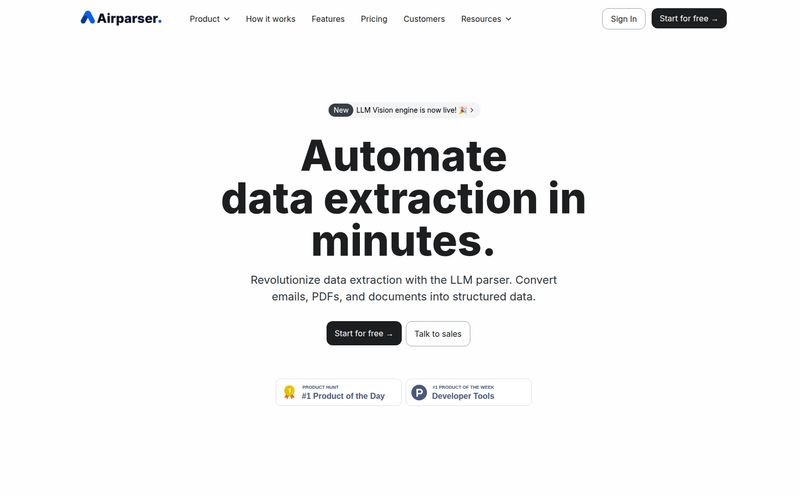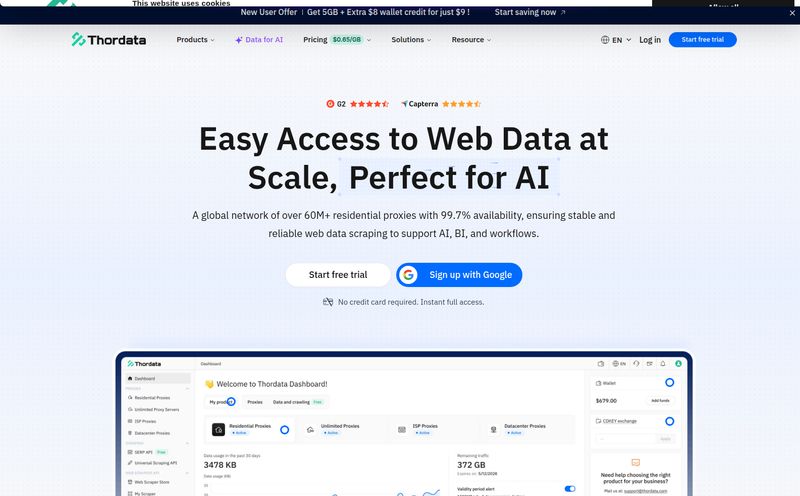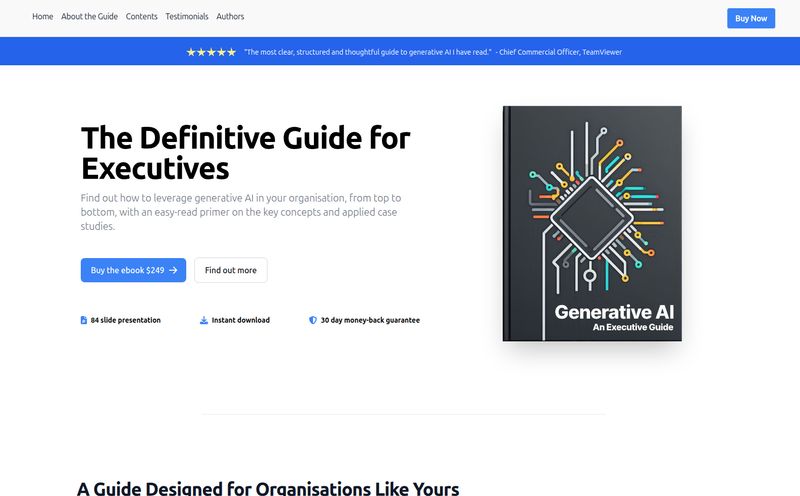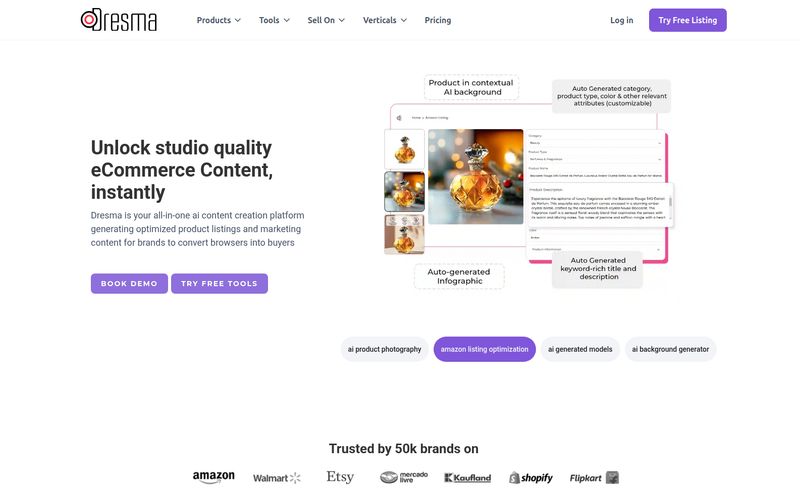Learning data science can feel... isolating. You're staring at Jupyter notebooks until your eyes cross, wrestling with a stubborn model that refuses to converge, and your only company is the blinking cursor. You hit Stack Overflow, read a few Medium posts, but that's not community. That's just tech support. I’ve spent years in this field, and I've seen countless forums and groups pop up, promising connection but delivering little more than crickets and unanswered questions.
It’s a constant search for that digital watering hole, a place with a real pulse. A while back, I stumbled upon a site that felt different: Open Data Science, or ODS.ai. It wasn't slick and corporate. It was a bit chaotic, buzzing with activity, and felt genuinely... human. So, is this the real deal? Let’s get into it.
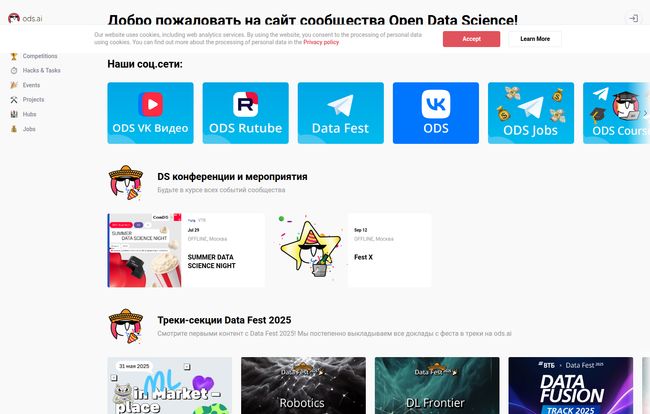
Visit Open Data Science
What Exactly is Open Data Science?
If you're expecting just another Q&A board, you're in for a surprise. ODS.ai isn’t a static library of information; it’s more like a bustling digital bazaar for anyone neck-deep in data science, AI, and machine learning. It’s an ecosystem. The entire vibe is less about academic theory and more about what people are actually building and what problems they're solving right now.
It’s a place where you can find ML competitions, see announcements for major data festivals, connect with people in specialized hubs, and even hunt for your next gig. It’s messy, it's active, and it’s focused on practical, real-world application. My kind of place.
The Core Features That Actually Matter
Any platform can throw a bunch of features at a wall to see what sticks. But with ODS, a few things really stand out to me as genuinely useful for anyone trying to grow in this industry.
More Than Just Leaderboards with ML Competitions
We all know about machine learning competitions. They're fantastic for your portfolio. But some platforms can feel like you're just throwing models at a leaderboard and praying. ODS hosts regular ML competitions that seem deeply integrated with the community itself. It's an opportunity to not only test your skills on interesting datasets (I saw ones on everything from robotics to marketplace predictions) but to do it alongside a community that's also participating. It's less about the solitary grind and more about a shared challenge.
The Pulse of the Community with Data Fest and Events
Scrolling through the site, the promotion of events like “Data Fest” is front and center. This is a huge green flag for me. A community that actively promotes and runs its own events, whether they're online conferences or local meetups, is a living one. It shows that people are moving beyond keyboard interactions and actually building professional relationships. These events are the heartbeat of the network, where the collaborations and “aha!” moments really happen.
Finding Your Tribe in Community Hubs
Okay, this might be my favorite part. The general “data science” umbrella is massive. Someone working in Natural Language Processing (NLP) has a very different daily reality than someone in ML Operations (MLOps). ODS gets this. They have Community Hubs for specific interests like 'ML in Production,' 'NLP,' 'AI Talent Hub,' and even regional groups. This is brilliant. It means you can filter out the noise and connect directly with people who are wrestling with the same niche problems you are. It’s the difference between shouting into a stadium and having a fascinating conversation in a coffee shop.
A Job Board That Isn't a Black Hole
I am eternally skeptical of job boards. Most feel like sending your resume into the void. But the ODS job board feels different. It's surrounded by active company hubs from major tech players like Yandex and Sber (major players in the Eastern European tech scene). This tells me that these companies aren't just posting jobs; they're invested in the community. It creates a warmer pipeline where your community participation might actually mean something to a potential employer. That’s a massive plus.
The Good, The Bad, and The Russian
No platform is perfect, and my experience with ODS wasn't without its quirks. First, let's address the elephant in the room: a significant portion of the site is in Russian. Now, before you click away, hear me out. For me, this wasn't a dealbreaker. It was a sign of its authentic, grassroots origin. With Google Translate's pretty decent in-browser translation, it's entirely navigable. It’s a small hoop to jump through, but the quality of the community on the other side might be worth it.
The biggest strength is that the community feels alive. There's a constant stream of new content, event updates, and discussions. And the fact that so much of it is free is just incredible. The focus is squarely on practical skills, which is a refreshing change from more academic-focused groups.
On the flip side, it can be a bit of a firehose. For a complete beginner, the sheer volume of information might feel overwhelming. The website navigation isn't as polished as some of the Silicon Valley unicorns out there; I even hit a 404 page on one of my clicks. But honestly? I almost found that endearing. It felt real, like a site built by and for practitioners, not one designed by a committee to maximize engagement metrics. A minor spelling mistake or a broken link here and there happens on a living, breathing project.
What About The Price Tag?
This is the best part. From what I can gather, the core of ODS.ai—the community access, the hubs, the articles, and participation in many events—is free. You get to tap into this incredible brain trust without hitting a paywall. Of course, you might find specific, intensive courses or premium conference tickets that come with a fee, but that’s standard practice. The fundamental value of the community itself doesn't seem to be locked away, and in this day and age, that’s a huge win.
Who is ODS Really For?
So, should you jump in? I'd say ODS is probably not for the person who has literally just written their first line of Python. It's a bit like being thrown into the deep end, which can be great, but you need to know how to at least doggy paddle first.
In my opinion, ODS is perfect for:
- The Junior Data Scientist: You know the basics, and now you need to build a portfolio, see how real projects are structured, and start networking.
- The Mid-Level Professional: You're looking to specialize in an area like MLOps or connect with other senior peers to discuss high-level challenges. The specialized hubs are gold for you.
- The Lifelong Learner: You're just passionate about the field and want to stay on the cutting edge, see what others are building, and maybe join a competition for fun.
My Final Thoughts on ODS.ai
So, what’s the verdict? I'm a fan. Open Data Science is a bit wild, a tad unpolished, and not perfectly tailored for a Western audience out-of-the-box. But it's authentic. It has a soul. It's a community in the truest sense of the word, built by people who are clearly passionate about pushing the boundaries of data science and AI.
If you're tired of sterile corporate platforms and want to plug into a network that’s buzzing with real projects and real people, give ODS.ai a shot. Fire up Google Translate, be prepared for a bit of exploration, and you might just find the tribe you've been looking for.
Frequently Asked Questions about Open Data Science
- What is Open Data Science (ODS)?
- ODS is a large, active community website and ecosystem for data science, AI, and machine learning professionals and enthusiasts. It features competitions, events like Data Fest, specialized community hubs, and a job board.
- Is ODS.ai free to use?
- Yes, the core community features, including access to hubs, articles, and many events, are free. Some specific courses or premium conference tickets may have associated costs.
- Is ODS suitable for beginners?
- It might be overwhelming for absolute beginners. It's better suited for those who have some foundational knowledge of data science and programming and are looking to apply their skills, build a portfolio, and network.
- Do I need to speak Russian to use ODS.ai?
- While a large part of the site is in Russian, it's navigable using the auto-translate feature in modern web browsers like Chrome. The value of the community can make this small extra step worthwhile.
- How is ODS different from a platform like Kaggle?
- While both host ML competitions, ODS feels more like a holistic community. It places a stronger emphasis on events, networking, and specialized discussion hubs, whereas Kaggle is more singularly focused on competitions and datasets.
- What kind of jobs can I find on the ODS job board?
- You can find a range of roles in data science, machine learning engineering, AI research, and data analytics. The presence of major tech companies as partners suggests a focus on serious, high-quality technical positions.
